The content of the article
Children's cough always becomes a cause of concern, and if not a child, then for sure parents. Moms and dads are in a hurry to take measures to eliminate it: take them to the doctor, drink hot milk, feed them with medicines.
In terms of these actions, it makes sense: showing the child to the doctor just doesn’t hurt, and drinking milk is always useful. But prescribing medications is certainly not necessary without special need. Moreover, not every cough needs treatment. Although everything is individual and each case must be considered separately from the others.
How to determine the type of cough
When examining a child, a pediatrician is always interested in how he coughs. The answer to this question is as detailed and complete as possible:
- When coughing: only in the morning or after a day's sleep, does it cough at night and during the day;
- How exactly: dry or wet, barking, strong or slight coughing, is there sputum and does it go away;
- Be sure to determine exactly when and after which the child began to cough: name the day, remember the events of the previous day;
- Tell your doctor more information about temperature, presence or absence of a runny nose, activity, appetite, and quality of sleep.
Collecting this information will help the doctor more accurately and quickly diagnose and, if necessary, prescribe treatment.
Causes of a cough in a child after sleep
Coughing after sleep does not always indicate the presence of a disease. This phenomenon can be quite physiological, that is, normal and not requiring treatment. Physiological cough may occur in the following cases:
- In infants, who sleep mainly on their backs, mucus accumulates in the nasopharynx.
- When children wake up and sharply change their position, a certain portion of mucus drastically enters the trachea and causes a productive wet cough that quickly passes and does not intensify.
- In infants eating liquid food (milk or a mixture), food during feeding often gets into the respiratory tract and does not always come out right away. The expulsion of drops of milk from the trachea often occurs after prolonged sleep and crying along with coughing. To rid the baby of such inconvenience, feed him in a reclining position on his side.
- During teething, salivation increases, so a lot of saliva accumulates in the throat during sleep. After awakening, the baby coughs - his airways are cleared.
- There is such a thing as artificial cough - children cough to draw attention to themselves. Often this happens just after waking up.
In any of these cases, coughing is not a pathology and does not require treatment. However, if the condition worsens, the child begins to cough harder, more often, constantly, it is better to show it to the doctor to exclude pathologies. A pathological morning cough that requires treatment may be a symptom of one of many diseases and conditions:
- Dry and superficial often indicates an allergy to dust, powder, which washed bedding, down from the pillow, pet hair;
- In combination with fever, weakness, runny nose, coughing may be a symptom of SARS;
- If sputum with an unpleasant odor clears its throat in the morning, and during the day the child often spits up, complains of burning in the chest or throat - this may be a manifestation of reflux esophagitis (ingestion of the contents of the stomach into the esophagus and pharynx);
- Dry cough, whistling and difficulty breathing can be signs of developing asthma or obstructive bronchitis; productive morning thoracic with yellow-green or brown sputum most often indicates serious inflammation in the respiratory system;
- Sometimes a morning cough without additional symptoms is a sign of a latent course of pneumonia;
- The obsessive dry and barking can indicate the presence of pertussis in the child.
Morning cough in children can be a symptom of not only these diseases, but also many others. It is almost impossible to independently determine the cause, as well as to prescribe the right treatment. Therefore, at the first morning manifestations, carefully monitor the condition of the child, so that if necessary, describe it to the doctor as accurately as possible.
Treating a child's cough after sleep
Coughing is a symptom. Unlike a disease, it is not necessary to treat it. In most cases, eliminating the cause of its appearance leads to a complete recovery of the child. If the cough is physiological, correction of the condition is not required, that is, the child does not need to take the medicine - everything will pass on its own.
If coughing occurs against the background of a “leak from the nose,” then it is necessary to treat the common cold - as soon as it passes, the cough will end. If on the eve of the first morning cough, the child interacted with sick children or one of the family members brought the infection home, it is very likely that the cough will soon be supplemented with a runny nose, possibly the temperature and other manifestations of SARS.
Treatment in this case should be comprehensive and symptomatic. If the baby coughs for no apparent reason, think about what has recently changed in his room: maybe there was a new toy or did you wash the laundry with a new powder? If so, then we are talking about allergies. To alleviate the condition of the child, eliminate the allergen if possible, often ventilate in the room and do wet cleaning a couple of times a day.

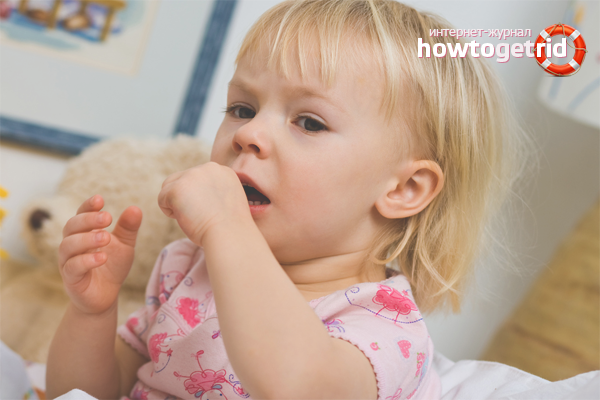

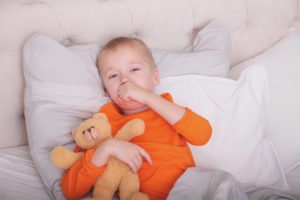
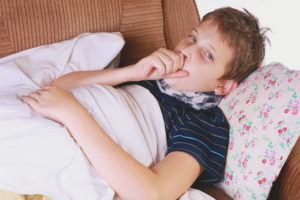



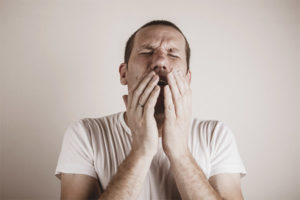
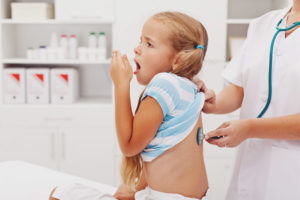
Submit